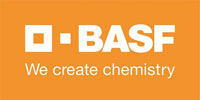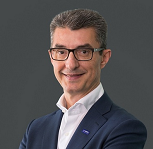The German chemical company BASF has been operating in Spain for half a century, where it has six production sites and employs more than 2,000 workers
This year they have announced one of the multinational company's largest investments in Spain in its recent history, an important indicator of the company's commitment to this country. BASF sees a strategic market in Spain where it wishes to operate in the long-term.
BASF has been present in Spain for more than 50 years. How important has the Spanish market become for this German company?
Spain has been a strategic country for the company for more than half a century, both in terms of sales and production. We have our most important production centre in Southern Europe in Spain, in Tarragona, and a benchmark centre for our global auto body paints division in Marchamalo, Guajalajara. The Group's commitment to the region has remained firm over the years, proof of this being the planned investments in the region, which amount to 60 million euros in 2021.
What do Spanish factories currently produce and for what markets?
BASF has an extensive product portfolio that supplies almost every industry and almost every country in the world. With more than 2,200 employees, the Group's companies in Spain market their products in the Iberian Peninsula and export to the rest of the world. Similarly, the products produced in the country are for both domestic consumption and export. Our production centre in Tarragona manufactures fungicides, polyester resins, propylene and polymeric solutions. The needs of the automotive industry are met by our plants in Marchamalo, which manufactures coatings for the automotive industry, Canovelles (specialising in surface treatment products) and Rubí (polyurethanes). The sites in the Free Trade Zone (surfactants) and Castellbisbal (special chemical products for personal and home care) provide solutions for the health and hygiene market. There is also an agricultural experimental station in Utrera and a number of R&D centres to develop new agricultural solutions.
Despite a reduction in sales due to the pandemic, there has been a commitment to significant investment in the Spanish market this year. What can be expected in 2021?
Investment in this country always involves a medium and long-term commitment. 2020 was a difficult year marked by the pandemic, and we are moderately optimistic with regard to 2021. In fact, the last quarter of 2020 and the first quarter of this year saw a clear recovery in sales, which leads us to expect that the current year should confirm that this situation is behind us and that we can return to the previous path of growth.
There will be an increase in personnel at the Digital Solutions global hub in Madrid. What kind of digital projects are being developed at this operations centre?
The BASF Digital Solutions global hub will double its workforce by the end of the year to 250 people. Here they are developing innovative digital solutions for BASF's production sites and companies around the world. With applied IT projects in all areas, we offer experience and access to pioneering technologies such as cloud computing, blockchain, big data and cybersecurity.
BASF is a leader in providing the market with solutions for sustainable agriculture. What products are they working on?
The company provides sustainable and innovative solutions for agriculture and farmers. The company aims to become a reference point through strategic alliances, innovative products and technologies and services tailored to the needs of our customers. An example of this is Agrigenio Vite, a decision support system (DSS) for the sustainable management of vineyards that we have just implemented in Spain.
They have an ambitious Circular Economy programme. What are the key factors?
Sustainability is at the heart of BASF's corporate strategy. The future will be sustainable or there will be no future and to make it sustainable it will be necessary to transform the current linear economy model into a circular one. In this specific area, we are committed to chemical recycling, 'Chemcycling'. This technology makes it possible to convert plastic waste, which until now has ended up in landfills or incinerators, into raw materials (pyrolysis oil). This process helps to meet a major global challenge such as plastic waste, while enabling the company to reduce the need for fossil fuels. The first products manufactured based on chemical recycling in Germany were put on the market in 2020 and work is now underway to bring them to the Spanish market.
It has recently been acknowledged, for the fifth time, as the most attractive company to work for in the chemical industry. How do you manage to retain talent?
Our collaborators make an extraordinary contribution to the success of BASF. Our aim is to attract, retain, develop and promote the best talent for our company and to support them, both personally and professionally. We cultivate a work environment that inspires and connects people. We have the best team in the industry and that is how we want it to remain, so we rely on diverse and inclusive leadership based on mutual trust, respect and dedication to maximum performance.



